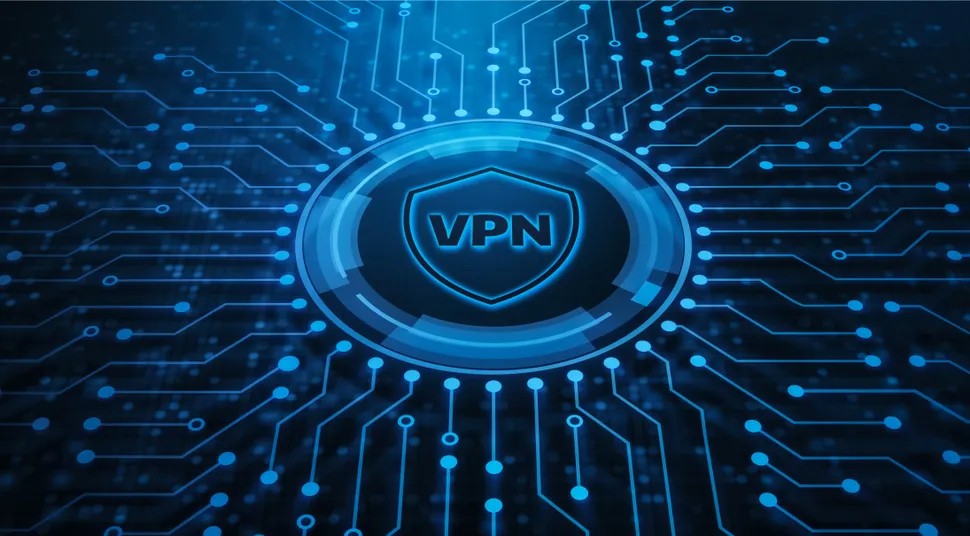
In today’s digital age, streaming content over the internet has become the norm. Internet Protocol Television (IPTV) is a popular method for delivering television content over the internet, offering a wide array of channels and on-demand content. However, with the rise of IPTV, there has also been a growing concern over privacy and security. This is where Virtual Private Networks (VPNs) come into play. In 2024, using a VPN for IPTV is not just recommended; it’s essential for secure and unrestricted streaming. This blog post will delve into why a VPN is crucial for IPTV users and how it enhances the streaming experience.
Understanding IPTV and Its Appeal
IPTV stands for Internet Protocol Television, a technology that delivers television content through the internet instead of traditional satellite or cable formats. This allows users to stream live TV channels, movies, and series on various devices, including smart TVs, smartphones, tablets, and computers. The advantages of IPTV are numerous:
- Flexibility and Convenience: IPTV services offer a wide range of content accessible from anywhere with an internet connection.
- Cost-Effective: Many IPTV services are more affordable than traditional cable or satellite subscriptions.
- On-Demand Content: Users can access a vast library of on-demand content, including movies, TV shows, and more.
- Customization: IPTV allows users to choose the channels and content they prefer, avoiding unnecessary subscriptions.
The Need for a VPN with IPTV
While IPTV offers many benefits, it also comes with its own set of challenges, particularly regarding security and privacy. Here are the key reasons why using a VPN with IPTV is essential:
1. Enhanced Privacy Protection
When you stream IPTV, your internet service provider (ISP) and other third parties can potentially monitor your online activities. This can lead to privacy issues, as your viewing habits and personal information can be exposed. A VPN encrypts your internet traffic, making it difficult for anyone to track your online activities. This ensures that your streaming habits remain private.
2. Bypassing Geographical Restrictions
Many IPTV services are geo-restricted, meaning that they are only accessible from specific regions. For example, some content might be available only in the US, UK, or other specific countries. A VPN allows you to change your IP address to one from a different country, effectively bypassing these geographical restrictions. This means you can access a broader range of content from anywhere in the world.
3. Avoiding Bandwidth Throttling
ISPs sometimes throttle the bandwidth of users who stream a lot of video content, leading to buffering and reduced streaming quality. By using a VPN, your ISP cannot easily detect that you are streaming IPTV, which helps in avoiding bandwidth throttling. This ensures a smoother and more reliable streaming experience.
4. Protection from Cyber Threats
The internet is rife with cyber threats, including malware, phishing attacks, and hacking attempts. When using IPTV services, particularly lesser-known or free ones, you might inadvertently expose yourself to these threats. A VPN adds an extra layer of security by masking your IP address and encrypting your data, making it harder for cybercriminals to target you.
How to Choose the Right VPN for IPTV
Not all VPNs are created equal, and choosing the right one for IPTV is crucial. Here are some factors to consider when selecting a VPN for IPTV in 2024:
1. Server Locations and Speed
For the best streaming experience, choose a VPN with a wide range of server locations and high-speed connections. This ensures that you can access geo-restricted content and stream in high definition without buffering issues.
2. No-Logs Policy
Privacy is paramount when using a VPN. Ensure that the VPN provider has a strict no-logs policy, meaning they do not keep records of your online activities. This adds an extra layer of privacy protection.
3. Device Compatibility
Make sure the VPN you choose is compatible with all the devices you use for streaming IPTV, including smart TVs, smartphones, tablets, and computers. Many reputable VPNs offer apps for various platforms and allow multiple simultaneous connections.
4. Customer Support
Reliable customer support is essential, especially if you encounter issues with your VPN connection. Choose a provider with 24/7 customer support and a good reputation for resolving problems promptly.
5. Security Features
Look for a VPN with robust security features, such as AES-256 encryption, a kill switch, and DNS leak protection. These features ensure that your data remains secure and your identity protected.
Top VPNs for IPTV in 2024
Based on the criteria mentioned above, here are some of the top VPNs for IPTV in 2024:
1. ExpressVPN
- Server Locations: Over 3,000 servers in 94 countries
- Speed: High-speed connections ideal for streaming
- Privacy: Strict no-logs policy
- Compatibility: Apps for all major platforms and devices
- Support: 24/7 live chat support
- Security: AES-256 encryption, kill switch, DNS leak protection
2. NordVPN
- Server Locations: Over 5,400 servers in 59 countries
- Speed: Fast and reliable connections
- Privacy: No-logs policy verified by independent audits
- Compatibility: Supports multiple devices and platforms
- Support: 24/7 customer service
- Security: Advanced security features, including Double VPN and CyberSec
3. CyberGhost
- Server Locations: Over 7,200 servers in 91 countries
- Speed: Optimized servers for streaming
- Privacy: No-logs policy
- Compatibility: User-friendly apps for various devices
- Support: 24/7 customer support
- Security: Strong encryption and additional privacy features
Setting Up a VPN for IPTV
Setting up a VPN for IPTV is a straightforward process. Here’s a step-by-step guide:
1. Choose a VPN Provider
Select a VPN provider that meets your needs based on the factors discussed earlier.
2. Sign Up and Install the VPN App
Sign up for a subscription plan with the chosen VPN provider. Download and install the VPN app on your streaming device(s).
3. Connect to a Server
Open the VPN app and log in with your credentials. Choose a server location that provides access to the content you want to stream. For example, if you want to access US-based content, connect to a server in the United States.
4. Configure Your IPTV App
Open your IPTV app and start streaming. Your connection is now encrypted, and your IP address is masked, providing enhanced security and access to geo-restricted content.
Conclusion
In 2024, using a VPN for IPTV is essential for secure and unrestricted streaming. A VPN not only protects your privacy and prevents bandwidth throttling but also allows you to bypass geographical restrictions and safeguard against cyber threats. By choosing a reliable VPN provider and setting it up correctly, you can enjoy a seamless and secure IPTV experience. Whether you’re streaming live TV or on-demand content, a VPN ensures that your viewing habits remain private and your data protected. Invest in a good VPN today to enhance your IPTV experience and enjoy the vast world of online streaming with peace of mind.
